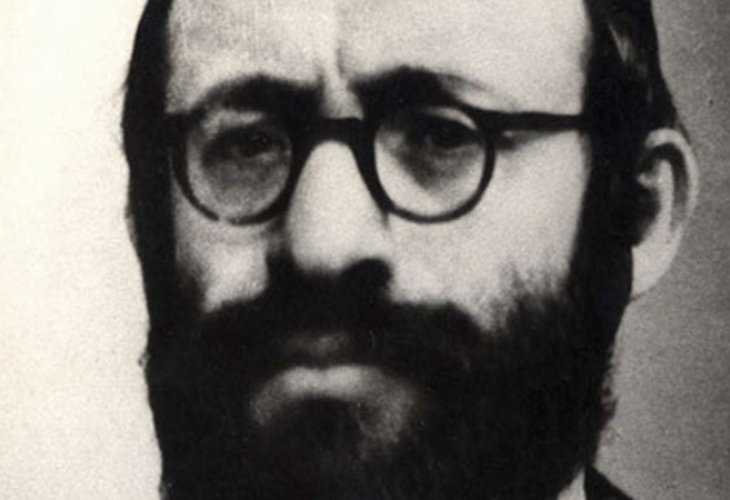Personal Stories
“It’s Too Late to Cry”: A Rabbi’s Wake-Up Call
When a son strayed from Judaism, a rabbi’s unusual story helped a father see where things went wrong.
 The Gaon Rabbi Michael Dov Weissmandl
The Gaon Rabbi Michael Dov Weissmandl"Rabbi, I’d rather die than live…”
The man standing before the great Torah scholar, Rabbi Michael Dov Weissmandl, was completely broken. It was the 6th of Kislev, Rabbi Weissmandl’s yahrzeit (anniversary of passing), and the rabbi listened quietly as the father, overwhelmed with emotion, began to pour out his heart.
He explained that his son, a young man in his twenties, had just come home and made a shocking announcement. He was engaged to a non-Jewish woman. He hadn’t asked for his parents’ opinion, hadn’t introduced her beforehand, hadn’t shared anything until that moment.
Now the home was in complete despair. The father felt hopeless. The mother cried night and day. The son made it clear that if they didn’t support him, he’d go through with the wedding anyway, without them.
So the father came to the rabbi, desperate for guidance. He didn’t know where else to turn.
Rabbi Weissmandl listened carefully and then gently asked the father to sit. “Let me tell you a story,” he said.
He began to describe a small Jewish community that had once lived within the borders of the Austro-Hungarian Empire. Their cemetery, however, was located just across the national border. That meant that every time someone passed away, the mourners had to get special permits to cross into another country just to bury their loved ones.
These funerals became a major ordeal, with every mourner needing approval. The process was exhausting and often meant fewer people could attend.
Eventually, the townspeople turned to the Emperor, Franz Joseph. Known for being kind-hearted and fair, the Emperor agreed to help. He personally signed a document stating that any Jewish funeral could pass freely, without permits or restrictions on the number of mourners.
It was a huge relief.
But after a while, people began to take advantage. Merchants started using the “funeral” permits as a way to smuggle goods, things like tea and cocoa, which were expensive and heavily taxed. They would load these items into coffins, gather a crowd of mourners, and pretend it was a real funeral.
The trick worked well for some time.
Until one day, during another “funeral,” a border guard grew suspicious. “I want to check the coffin,” he said.
“But we have the Emperor’s permission!” the mourners insisted.
“That may be,” replied the guard, “but I still want to check.”
The mourners panicked. “You’ll be desecrating the body! It’s forbidden to open the coffin!” they cried out.
Unmoved, the guard lifted the lid. Instead of a deceased person, he found piles of smuggled goods.
The merchants begged for mercy. They pleaded with tears: “We have families, children, we didn’t mean harm. Please, forgive us!”
But the guard answered coldly. “If you had cried like this before, I might’ve believed it was a real funeral. But you were laughing and joking while carrying the coffin. That’s how I knew something was off. It’s too late now. The time for tears has passed.”
Rabbi Weissmandl turned to the father, placing a comforting hand on his shoulder.
“I understand your pain. I really do,” the rabbi said softly. “But now? There’s not much I can do. Your son is already grown. He’s choosing his own path.”
Then Rabbi Weissmandl’s voice took on a sharper tone.
“But tell me honestly, what were you expecting? You sent your son to schools where Torah wasn’t taught. You raised him in an environment surrounded by non-Jewish influences. Did you think he would grow into a G-d-respecting Jew on his own?
“A child, a teenager, even a young adult, these are not people who can always protect themselves from spiritual harm. It’s not enough to hope for the best. You have to guide them, teach them, invest in their connection to Yiddishkeit (Judaism).
“Now you’re crying and yes, it hurts but you should have cried earlier, when it could have made a difference.”
The story left the father speechless.
Rabbi Weissmandl didn’t say it to blame him. He said it to teach him and all of us a deep truth: that some tears are too late, and some choices, once made, are hard to reverse.
But even so, the story offers more than a warning. It’s a reminder that if we truly value our children’s spiritual path, we must plant the seeds early through example, love, and Jewish education. We must be present, attentive, and open-hearted long before crisis forces us to react.
That way, the tears we cry will be ones of joy not regret.

